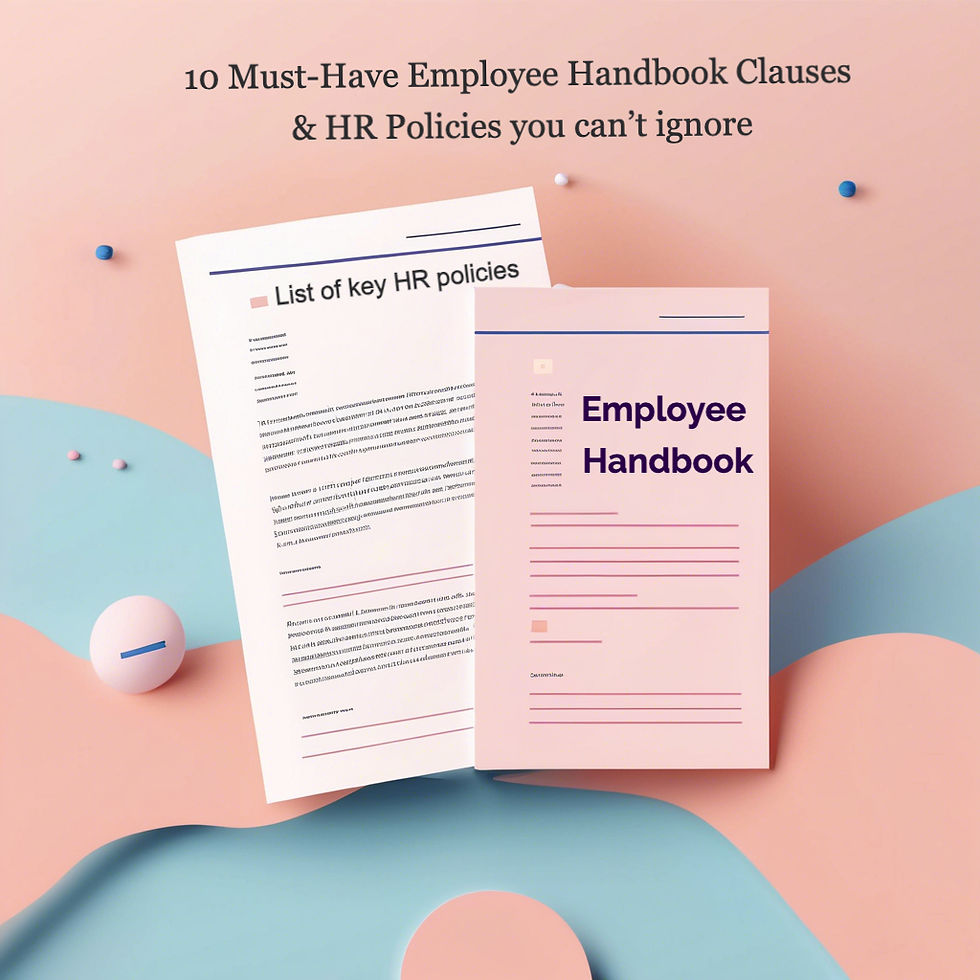Supreme Court rules wage disputes & termination orders as Non-Arbitrable
- reetika72
- Mar 18
- 4 min read
In a major win for employee rights, India's Supreme Court has ruled that companies cannot force workers into private arbitration for disputes over unpaid wages or wrongful termination. This decision, stemming from the case of Dushyant Janbandhu v. Hyundai Autoever India, ensures that employees can pursue their grievances through established labour laws, specifically the Payment of Wages Act and the Industrial Disputes Act.
Case Background
Mr. Janbandhu was employed by Hyundai Autoever India Pvt. Ltd. as an Assistant Manager from 2019. Following a period of remote work due to the COVID-19 pandemic, he was asked to resume office attendance in August 2020, which he refused. This led to a show cause notice for absenteeism in September 2020, followed by an inquiry and a charge memo in November 2020 for non-cooperation and absenteeism. Ultimately, Mr. Janbandhu was terminated on 21st January 2021.
During this disciplinary process, his salary was withheld, prompting him to issue a legal notice and file a petition under Section 15(2) of the Payment of Wages Act, 1936 (PW Act). In response, the company attempted to initiate arbitration, unilaterally appointing an arbitrator, as per the terms of the employment agreement. The Authority under the PW Act dismissed the company's application to refer the matter to arbitration, noting that the employment agreement could not override the statutory provisions of the PW Act.
Separately, Mr. Janbandhu challenged his termination by filing a petition under Section 2(A) of the Industrial Disputes Act, 1947 (ID Act), which remained pending. Subsequently, the company filed a petition before the Madras High Court under Section 11(6) of the Arbitration and Conciliation Act, 1996, seeking the appointment of an arbitrator for disputes regarding non-payment of wages and the legality of the termination. Notably, the company also raised a new claim of Mr. Janbandhu violating a non-disclosure obligation (clause 19 of his appointment order) for the first time in this petition. The High Court allowed the petition and appointed an arbitrator. This led Mr. Janbandhu to appeal to the Supreme Court, arguing that disputes concerning wages and termination are not arbitrable and that the company's Section 11(6) petition was an abuse of process.

Supreme Court’s Ruling: Key Takeaways
The Supreme Court, comprising Justices Pamidighantam Sri Narasmha and Sandeep Mehta, overturned the High Court's decision, firmly stating that the core issues at hand were not amenable to arbitration. The court outlined several key reasons for this conclusion:
Statutory exclusivity
The court highlighted that disputes concerning non-payment of wages fall squarely under the jurisdiction of the Authority under the PW Act, specifically Section 15(2)1 . Section 22 of the PW Act explicitly bars civil courts from entertaining suits for the recovery of wages if the matter is already the subject of an application under Section 15 of the PW Act. Similarly, the legality of the termination order falls under the exclusive jurisdiction of the Industrial Tribunal under Section 2(A) of the ID Act. The court emphasised that this jurisdiction operates to the exclusion of civil courts and is also non-arbitrable.
Pending statutory proceedings
The appellant had already approached the statutory authorities under the PW Act much before the respondent filed the petition under Section 11(6) of the Arbitration and Conciliation Act. The Supreme Court noted that these disputes were already pending before the appropriate statutory bodies.
Non-Arbitrability based on precedent
The judgment relied on the principles laid down in Vidya Drolia v. Durga Trading Corporation. This precedent establishes a fourfold test for determining when a dispute is non-arbitrable, including when the subject matter is expressly or by necessary implication non-arbitrable as per mandatory statute(s). The court found that the PW Act and the ID Act create such statutory bars to arbitration for the disputes in question....
Rejection of afterthought claim
The respondent had also attempted to bring in a dispute regarding the alleged violation of a non-disclosure obligation under clause 19 of the appointment order. However, the Supreme Court deemed this claim an "afterthought" and "non-existent". The court pointed out that this alleged violation was not mentioned in the initial show cause notice, the inquiry report, the charge memo, or the termination order itself. The termination was explicitly based on absenteeism and non-cooperation.
Abuse of Process
The Supreme Court concluded that the respondent's petition under Section 11(6) was an "abuse of process", intended to threaten the appellant for having legitimately approached the statutory authorities under the PW Act and the ID Act. Consequently, the Supreme Court allowed the appeal, set aside the High Court's order, and dismissed the respondent's petition under Section 11(6) with a cost of ₹5 lakhs imposed on the respondent.
This judgment reinforces the principle that matters governed by special statutes conferring specific powers on designated authorities, and where those statutes contain provisions for resolution of disputes, are generally not arbitrable. The Supreme Court's decision provides clarity on the arbitrability of wage and termination disputes, underscoring the primacy of the statutory forums established under the Payment of Wages Act and the Industrial Disputes Act for resolving such grievances.




Comments